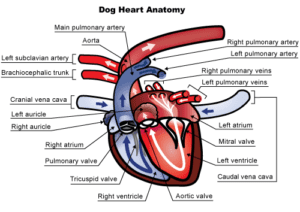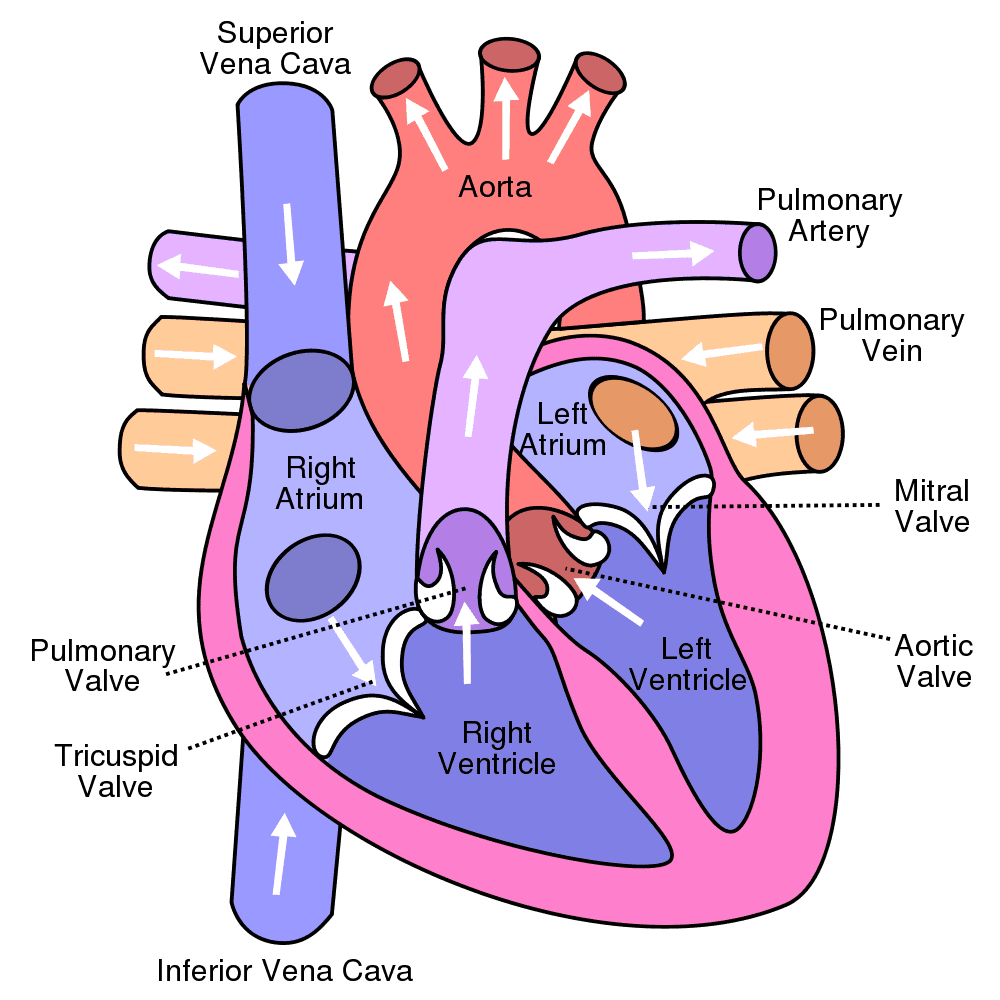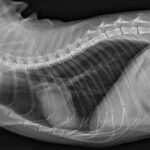Cats and dogs like people have cardiac disease, which when noticed, often presents itself as a cough of exercise intolerance. Without symptoms noticed at home, during a routine visit to your veterinarian, a clue that something is going on my be noticed when your veterinarian hears a heart murmur.
What is a murmur?
A heart murmur is one of several types of abnormal heard when listening to your pet’s heart with a stethoscope. Normally, two distinct sounds are heard when listening to the heart of a normal dog or cat. These are often described as “lub” and “dub”. When listening with a stethoscope one hears: Lub-dub…Lub-dub….Lub-dub.
A murmur is an abnormal extra sound (which can sometimes drown out the normal sounds). Murmurs most commonly occur between the “lub” and the “dub” and have a “shooshing” or “whooshing” quality.
Murmurs are caused by turbulent blood flow such as when the structure of the heart undergoes changes and does not allow for regular laminar blood flow.
Turbulence (murmurs) can arise from benign called “innocent” causes such as anemia and excitement and in young puppies and kittens under 16 weeks.
Other murmurs are congenital and result from defects at birth. The last class of murmurs is acquired and is often the result of a disease process affecting your animal companion as he or she ages.
The only way to know the type and cause of the murmur as well as the impact on your companion animal’s life is through a diagnostic workup including chest x-rays, a cardiac ultrasound (echocardiogram), and EKG along with a blood pressure and, if needed, a lab test that detects abnormal cardiac stretching.
Urban Animal can help you diagnose, monitor and treat cardiac disease in your cat or dog. If your pet has been dagnosed with a murmur and you don’t know what to do, call us and schedule an appointment.



